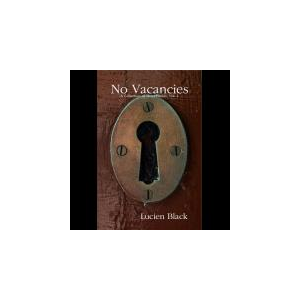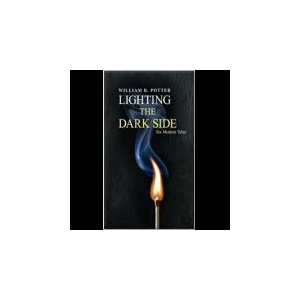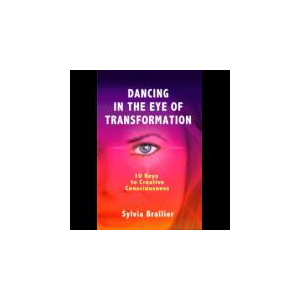MRS. LIEUTENANT: A WOMEN'S FRIENDSHIP NOVEL
When newly married Sharon Gold suddenly finds herself in the unfamiliar culture of the U.S. Army during the unpopular Vietnam War, she realizes she must quickly adapt to this alien world. If she does not learn to "fit in," the consequences could have a severe impact on her husband.
The women's friendship she unexpectedly experiences turns out to be her lifesaver.
Phyllis Zimbler Miller is the author of fiction and nonfiction books, which can be viewed on Amazon at www.ZimblerMillerbooks.com
The Story Behind This Book
In 1992 an imprint of a major publishing house brought out my Jewish holiday book SEASONS FOR CELEBRATION written with Rabbi Karen Fox.
Some time later I unsuccessfully struggled for years to get a traditional publisher interested in my novel MRS. LIEUTENANT.
Then as I approached my 60th birthday I decided I couldn’t wait any longer for a publisher to say yes to me. I went the self-publishing route with Amazon’s print-on-demand unit BookSurge.
And right then MRS. LIEUTENANT was selected as a 2008 Amazon Breakthrough Novel Award semi-finalist, which did encourage me that I was on the right track.
I felt so strongly about this book because it is based on my own experiences as a new Mrs. Lieutenant in the spring of 1970 during the Vietnam War. I wanted to share with people who do not have a close connection with the military a story about that special community.
And, yes, there are many parallels between the U.S. today and the U.S. in 1970.
Praise and Reviews
|
|
 Best read in years.
Best read in years., June 9, 2008
This book was a wonderful. I could not put it down. I cared about each
women. The author kept us involved with the time in history and the
struggles of the era for women and minorities. I HIGHLY recommend this
novel. |
by Allan Tobin
I
missed the draft (being a bit older), but I was a tutor in one of the
Harvard houses as the war heated up, and people had to make choices
about their routes of service (including the self-styled "yellow
berets" that you pointedly portray at Fort Knox, though most of the MDs
I knew went to NIH).
In 1970, at the time the book is set, I
was a postdoc at the Weizmann Institute, and as Robert was turning on
the radio to hear the latest in the war of attrition, I was daily
exposed to the hourly newscasts in the Weizmann cafeteria, but had to
find the BBC to hear about Vietnam and the antiwar protests, including
Kent State.
So the book brought me back to those times, and to
being a young married person (at the time to my now-ex-wife), listening
to the slightly older folks talking about babies and daycare in a way
that I never imagined would ever really touch me. Interesting how time
catches up with us!
Of course, I loved Sharon and Robert, and
I bite my tongue not to ask the usual questions. But all the characters
seemed real and sympathetic, even poor Jim. I did wonder, though,
whether my
20-something contemporaries in 1970 would have been
able to be as understanding as your characters were. One would have
hoped so.
On the other hand, maybe the intensity of the life
you portray (and that you lived), with its ultimate high stakes, did
make your characters a lot wiser than I remember having been.
I
loved the way that you have weaved the four cultures of the heroines --
and not just them but also their common culture clash with the
day-by-day news and the Mrs. Lieutenant manual. It's almost incredible
that such a manual existed in that time (though I still do read Miss
Manners
from time to time, rather more sympathetically than I would have expected).
You've
done a wonderful job conveying the disconnects of the women's worries,
the men's fears, the greenness of their relationships (especially
concerning sex and sexual jealousy), and the difficulty that they all
had -- with each other and with their husbands -- in talking about
feelings.
What an accomplishment!
by Anna L. Horner
5.0 out of 5 stars Quiet Heroism, July 29, 2008
By Anna L. Horner "Diary of an Eccentric"
Mrs.
Lieutenant: A Sharon Gold Novel follows four women who spend nine weeks
in Fort Knox, Kentucky, as their husbands complete Armor Officers Basic
(AOB) training. The book takes place in early 1970, just after the Ohio
National Guard kills several Kent State University students during the
volatile times of the Vietnam War.
The women are as different as
night and day: Sharon, a Jewish anti-war protester from Chicago; Kim, a
white Southern Baptist from North Carolina whose rough childhood causes
her to cling to her jealous husband; Donna, a Puerto Rican coping with
the shift from being the daughter of an enlisted man to the wife of an
officer; and Wendy, a black woman from South Carolina who confronts the
harsh realities of racial discrimination for the first time.
As
a former Mrs. Lieutenant herself, Phyllis Zimbler Miller writes from
experience, and that experience shines through in a moving novel that
showcases the struggles of officers' wives during the Vietnam War.
Zimbler Miller does a great job showing the fears of these women as
they contend with the fact that their husbands likely will go to war. I
could feel their fears myself, and had my own husband not left the
National Guard several years before we married, they might be fears I'd
know first hand right now.
I've read novels about serving in the
war and the psychological impact of the war on returning soldiers, but
until Mrs. Lieutenant, I never read a book about the wives of those men
who served. Zimbler Miller's novel is important because it preserves a
part of our history, a part that often is overlooked. She also does a
marvelous job detailing the anti-war sentiment, racial and religious
discrimination, and social divisions within military ranks. Not only
did I enjoy reading each woman's story, but I also learned a lot about
the military and the expectations of officers' wives.
Zimbler
Miller begins each chapter with a snippet of news from the time period,
as well as a quote from Mary Preston Gross' Mrs. Lieutenant, a sort of
etiquette book for officers' wives. The women are expected to learn how
to properly write and respond to invitations, as well as how to serve
tea, among other things. Such things are important, given that the
quote on the first page of the novel states that the government gains
both the officer and his wife. In addition to dealing with fears of
their husbands' deployment, the women must contend with secrets from
the past and how their actions could help or hinder their husbands'
military careers. They are thrust together to plan the entertainment
portion of the AOB officers' wives' graduation luncheon, and they
quickly form a strong bond because, no matter the differences of race
or religion, they understand one another.
In Mrs. Lieutenant,
Zimbler Miller has created a cast of strong female characters. In the
face of a decision that could mean life or death for their husbands,
they do not crumble. Their fear might cause them to waiver or break
down, but they rise up again. They have no other choice. Sharon says it
best on page 453: 'There's such a thing as quiet heroism. The kind that
doesn't bring attention to itself. The kind that just does a good job.'
l

















